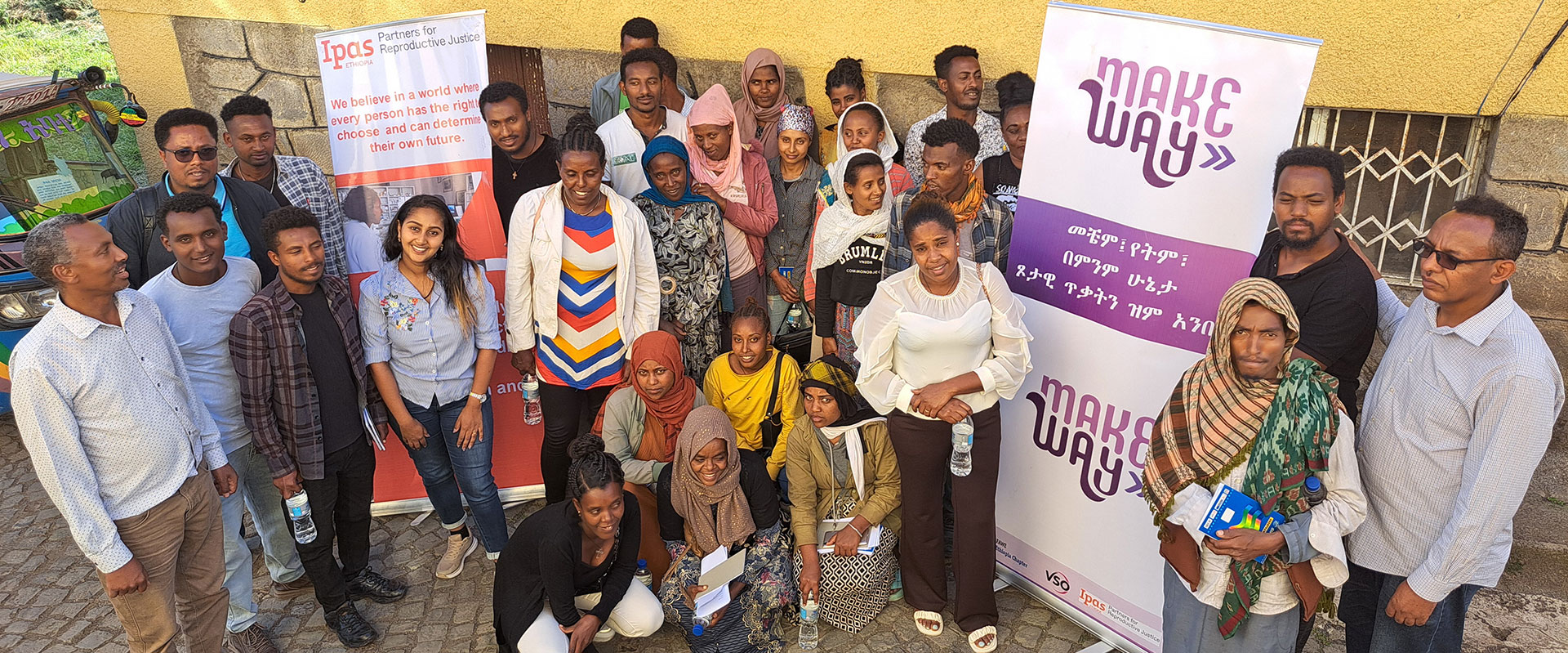Launched in 2022, the Make Way Project is a four-year initiative by Ipas Ethiopia to support Make Way Ethiopia as part of the broader Make Way Program—a consortium effort advancing youth access to sexual and reproductive health and rights (SRHR) through an intersectional lens across several African countries.
As an implementation partner to the Make Way Ethiopia Program, Ipas Ethiopia collaborates with the Organization for Development of Women and Children in Ethiopia and the Ethiopian Women with Disabilities National Association to support youth in accessing vital SRHR care, especially those who are displaced or living with disabilities. Together, they are driving inclusive, locally led solutions across Addis Ababa, Amhara, and Oromia to dismantle systemic barriers and ensure inclusive care.
“Imagine this,” begins Betselot Mengesha, Make Way Project advisor for Ipas Ethiopia. “A young woman in her late teens walks into a clinic. She’s experiencing alarming pain and bleeding, and she also has hearing impairment. Her heart is pounding with fear and hope. Her only way to explain is through written notes, but the health-care staff, lacking sign language training, misinterprets her writing. She needs emergency obstetric care, but her words, her fears, are misunderstood. She leaves without the advice or care she desperately needs.”
“This isn’t a rare occurrence—it’s the lived reality for many young women with hearing impairment in Ethiopia,” Betselot explains.
But the Make Way Project is working to change that.
Top image: Health professionals pose together after attending a Values Clarification and Transformation (VCAT) training to sensitize them to the unique issues faced by youth, especially those with disabilities and/or who are internally displaced. Betselot Mengesha stands in front of the Ipas sign.
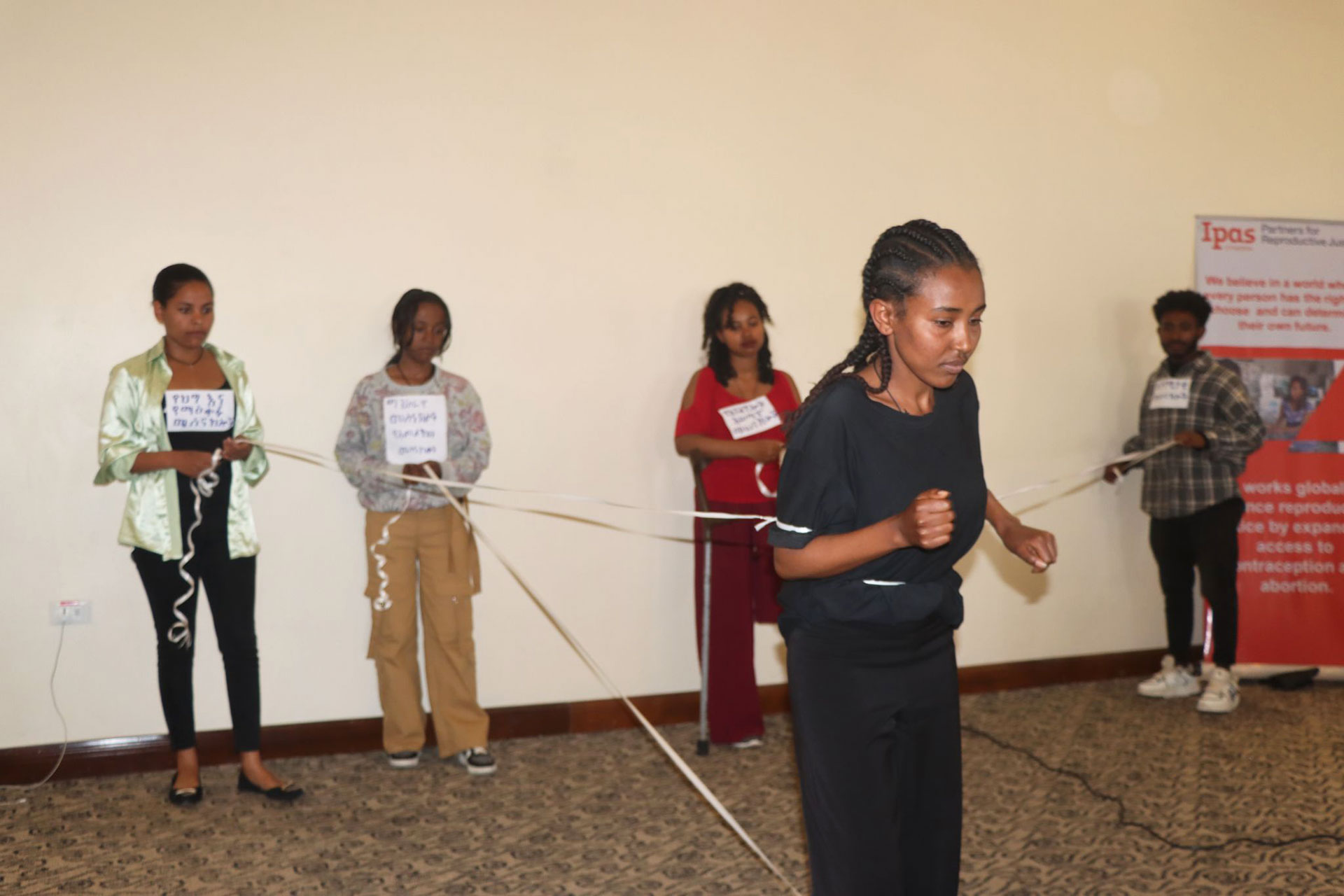
Pictured above: During an International Disability Day workshop, youth participants use role play to spotlight the barriers young people with intersecting challenges face when seeking sexual and reproductive health and rights (SRHR) services—and to highlight how engaging stakeholders can help dismantle those barriers.
Overlapping obstacles to youth-friendly care
Many young people in Ethiopia—especially those displaced or living with disabilities—face overwhelming obstacles to accessing sexual and reproductive health and rights (SRHR) services. According to a 2025 UNICEF report, there are nearly 4.5 million displaced people in Ethiopia due to civil war and ongoing conflict. A significant portion of them are youth, navigating disrupted lives and disjointed systems. Their futures can depend on information and care they receive now.
Displacement not only separates people from their homes, it disconnects them from everything they know. Ipas has long partnered with community groups and health workers to meet people’s urgent needs in crisis settings such as this, where youth are especially at risk.
“Displacement disrupts social support networks, leaving young people isolated and vulnerable,” Betselot explains. “They’re often exposed to violence, including sexual violence, and may lack specialized care and support.”
Disability adds another layer of challenge. A 2023 study found that youth with disabilities were less likely to have accessed youth-friendly reproductive health services than those without disabilities. Issues like stigma, lack of information and limited access to care continue to shut young people out of systems that should serve them.
“There’s a deep-rooted stigma around disability and displacement,” says Betselot. “Many young people fear judgment, rejection, or even violence when seeking care, especially if they’re perceived as violating social norms.”
The Make Way Project doesn’t just identify these barriers—it shatters them.
Make Way centers the voices of youth facing these systemic challenges, valuing their lived experience and solutions. Its comprehensive approach focuses on practical, scalable strategies that honor community culture and remove barriers to care.
1. Centering youth leadership
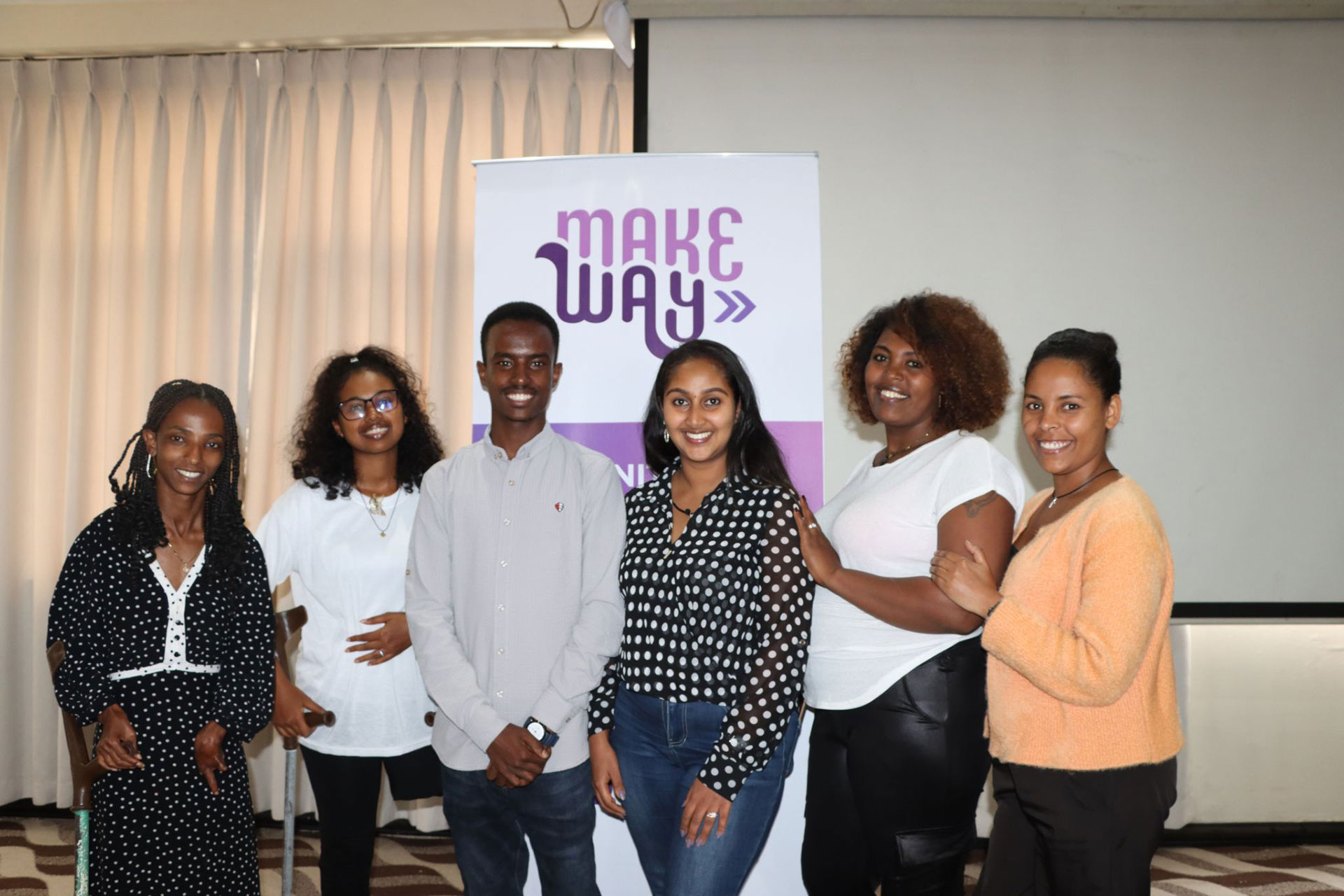
© Ipas Ethiopia
Betselot Mengesha (shown third from right screen) poses with members of the Regional Youth with Disabilities Council.
Youth aren’t just participants—they’re leaders. In 2023, four regional workshops trained 136 young people, including individuals with disabilities, to become peer educators and community advocates for SRHR. In 2024, 50 additional youth changemakers were trained to further reshape their communities.
“From these gatherings, young women have emerged as peer educators, leading community discussions and becoming agents of change,” Betselot shares. “They’re talking openly about issues that were once taboo, proving that when youth are empowered, entire communities shift.”
The Make Way Project operates across Kenya, Rwanda, Uganda, Zambia, and Ethiopia. In Ethiopia, three young people with disabilities were selected to join the Regional Youth with Disabilities Council, where they advocate for inclusive youth participation in sexual and reproductive health and rights policy processes under the Make Way Project.
2. Making health services accessible
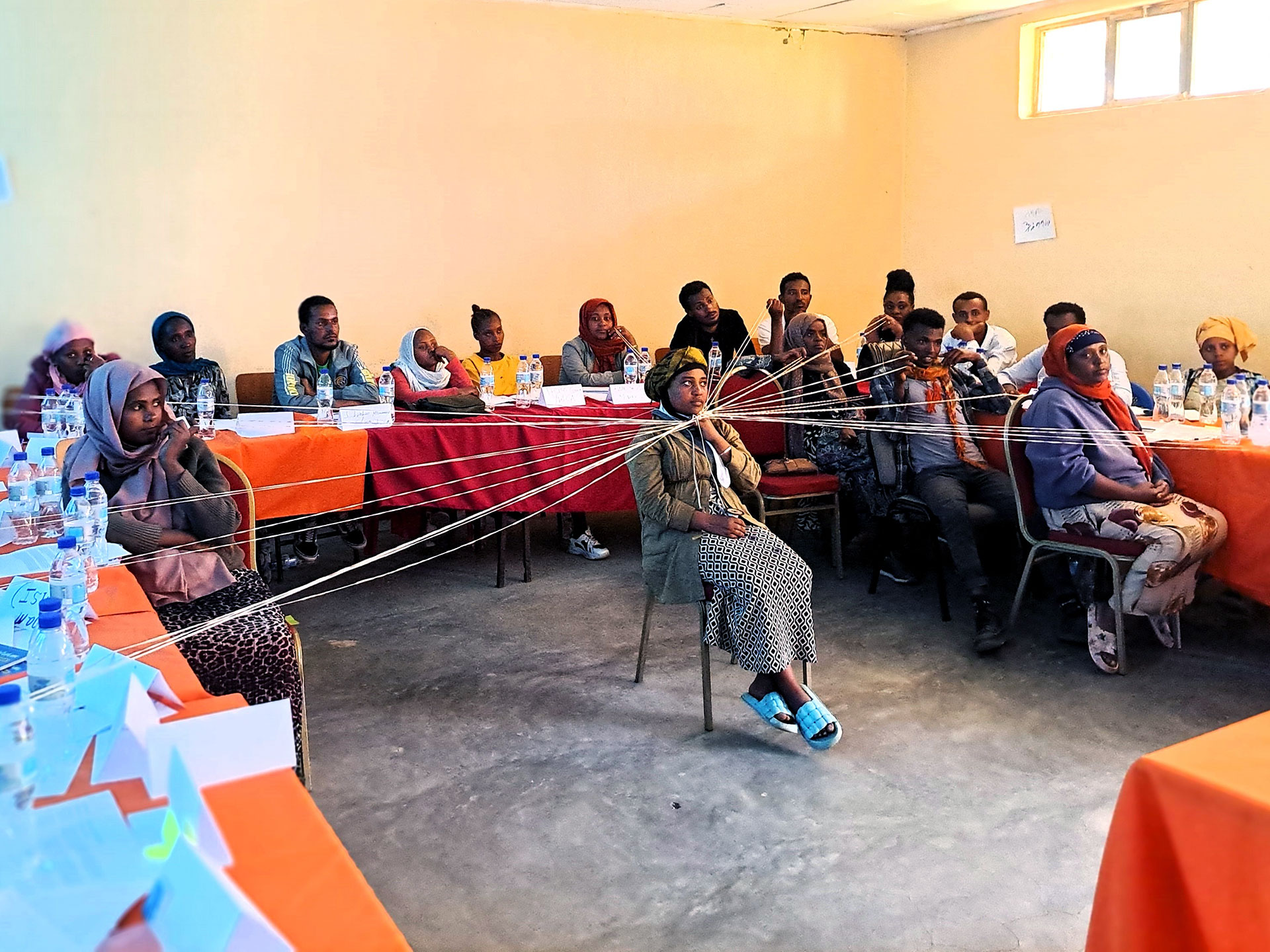
© Ipas Ethiopia
At a Values Clarification and Transformation (VCAT) training for healthcare professionals, participants engage in an activity where they are confronted with the tragic consequences that can occur when access to reproductive health care is restricted. They discuss their own beliefs and duty to offer proper medical care to prevent unnecessary deaths. The VCAT aimed to sensitize them to the unique issues faced by youth, especially those with disabilities and/or who are internally displaced.
In the city of Addis Ababa, the project introduced sign language interpretations and disability inclusive training for health-care professionals. These efforts equipped 245 providers and advocates with the tools and skills to better serve youth who may have disabilities or be displaced by armed conflict.
“Simple initiatives like sign language training for health-care professionals can profoundly transform young people’s experiences,” Betselot emphasizes. She shares a memory of one health-care provider who, after completing sign language training, told her: “Before this, I felt helpless when clients with hearing impairments were seeking medical information and care. Now, I can communicate—and more importantly, I can provide care with dignity.”
Meanwhile, safe spaces created by Make Way in internally displaced people (IDP) camps provide more than care—they offer dignity and trust. The Make Way Project helps people in these camps access information, counseling, SRHR services, and supplies. In 2024 alone, the Make Way Project’s collaborating partner ODWaCE delivered 1,250 sanitary pads, 984 notebooks, and 400 pens at these centers, directly reaching 1,450 adolescents with these resources.
3. Sparking conversations in supportive community
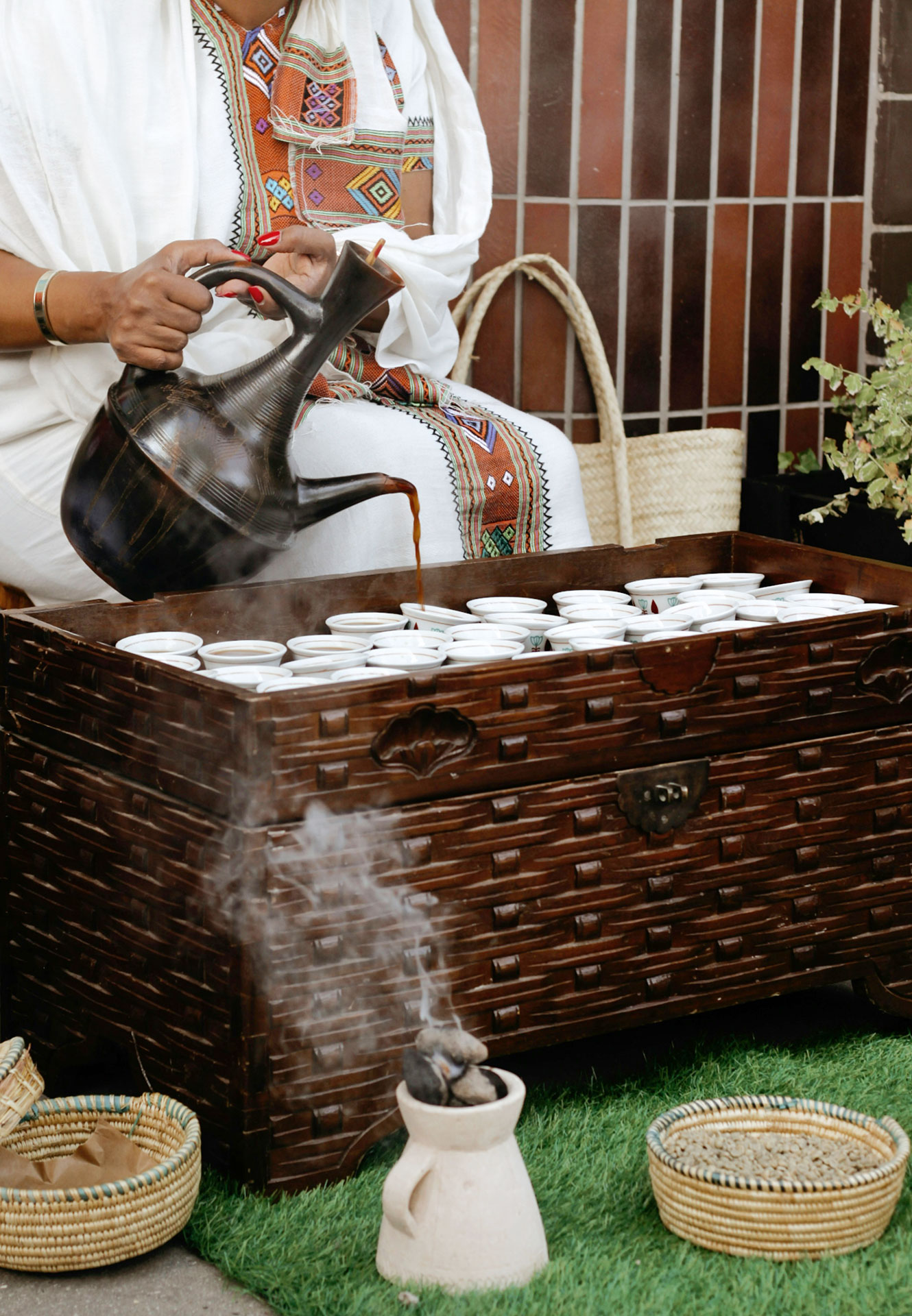
Zeynep Sümer
The coffee ceremony in Ethiopian culture is a deeply rooted tradition that symbolizes hospitality, respect, and togetherness.
To confront stigma, the project embraces a culturally resonant approach. Make Way hosts traditional coffee ceremonies in both urban areas like Addis Ababa and camps where people displaced by conflict reside. These trusted gatherings create space for open conversations about sexual and reproductive health and rights (SRHR). For displaced participants, the ceremonies offer more than information and understanding—they help restore a sense of safety and belonging.
In the first six months of 2023, attendance at coffee ceremonies reached 36,300 individuals—more than double the original target of 14,160. Of those reached, 3,125 were women and youth with disabilities. Materials were made accessible through local languages, including sign language. The practice continued into 2024, engaging 931 individuals in safe, ongoing community dialogue.
“Coffee ceremonies are deeply embedded in Ethiopian culture,” Betselot explains. “They offer a safe, familiar setting to discuss stigmatized issues, from contraception to abortion care. This approach builds trust and promotes open dialogue.”
“The involvement of respected community members, including religious leaders, helps reduce stigma around these essential discussions,” she adds.
4. Going viral—in a good way
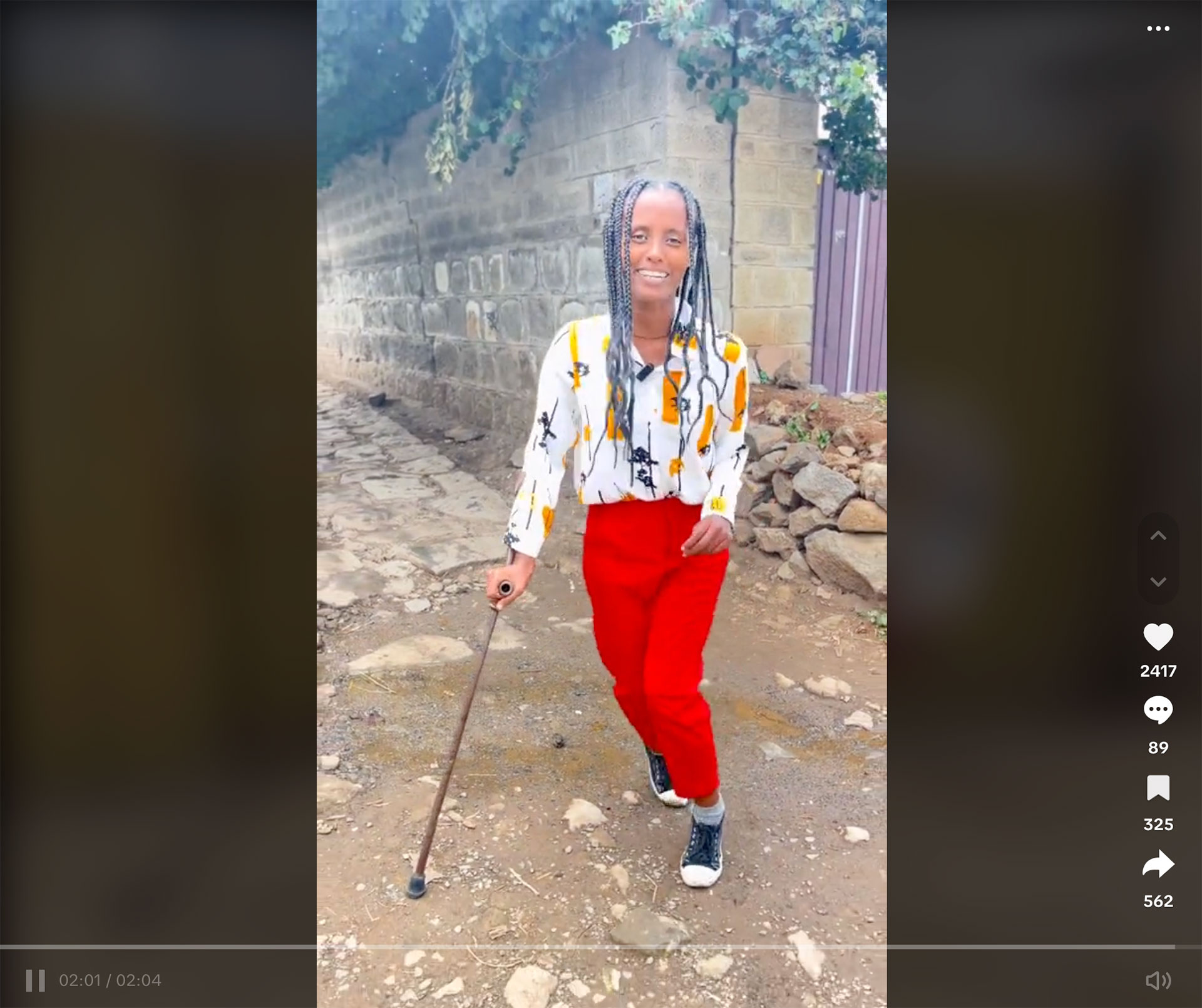
This Tik Tok series features youth with disabilities sharing experiences, information, and solutions for youth facing relatable challenges.
The project also launched a youth-led social media campaign using TikTok to share relatable content on SRHR—created by and for young people with disabilities. The team expected around 6,000 views—but the videos went viral, reaching more than 99,000 viewers and sparking nationwide conversations about youth access to care.
Real progress, real impact
In 2024 alone, Make Way reached more than 116,000 people with SRHR support, information, and engagement. This includes:
50
Youth trained to become peer educators and powerful advocates for change
245
Health providers and advocates equipped with inclusive care practices
931
Individuals engaged in coffee ceremonies that tackled SRH, GBV, disability, and harmful traditional practices
4,000
Girls and women with disabilities and 1500 health workers reached with vital SRHR information
8,601
People given SRHR information and connected to services in IDP camps through community outreach
What’s next? Building on momentum ->
The Make Way Project is proof that youth leadership and strong partnerships drive real change. But progress won’t sustain itself.
“Strong partnerships with local communities and organizations, local government and private sectors are key to sustaining this progress,” Betselot says. “Without continued support, many of these gains could be lost. Sustainable change requires ongoing learning, adaptation, and long-term commitment.”
“When we invest in young people, we invest in the future of their communities,” Betselot affirms. “But to truly transform systems, we must push for policies that respect reproductive rights and health-care systems that don’t leave anyone behind.”
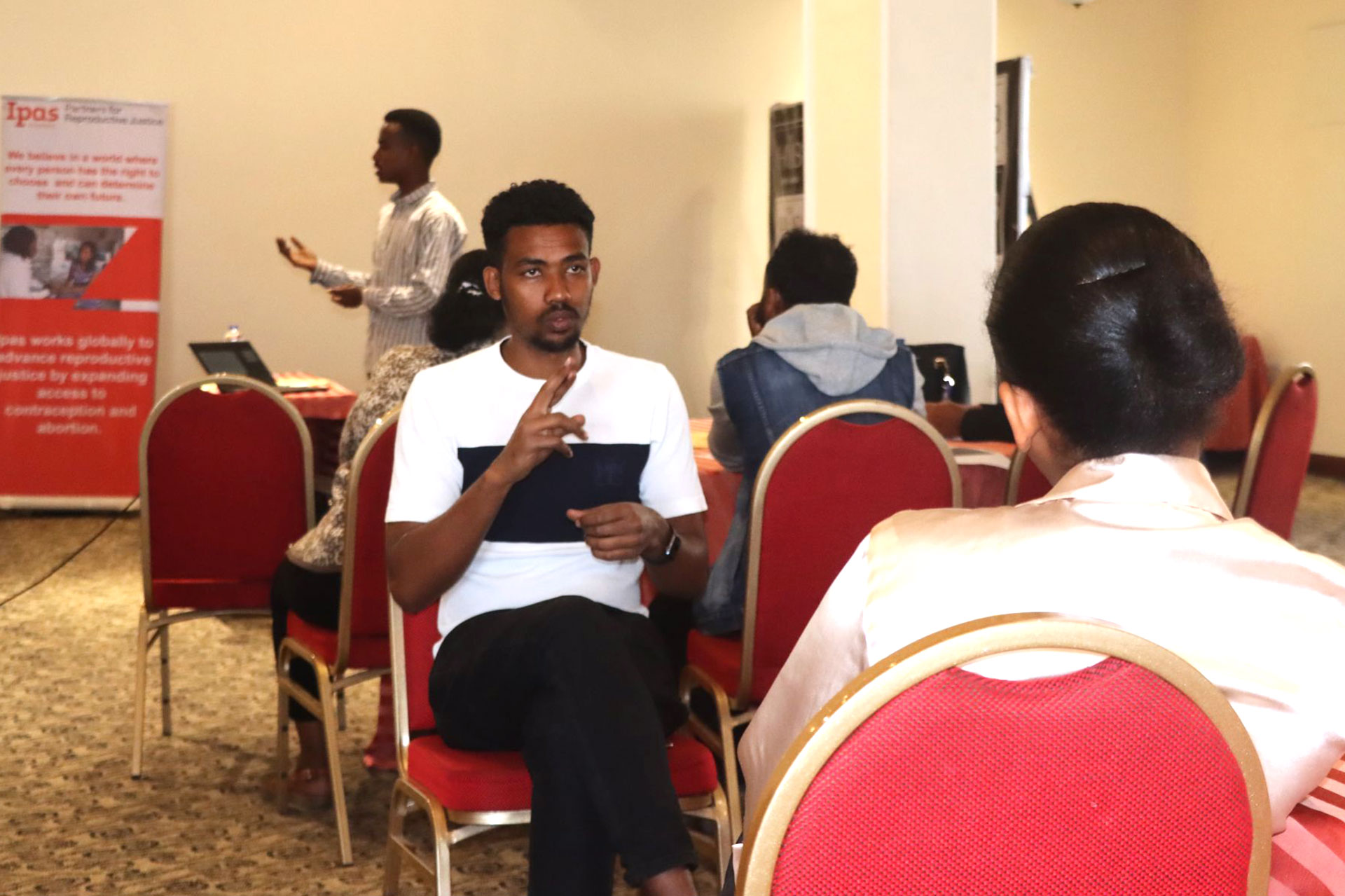
Pictured above: Robel Silma is a sign language interpreter for the Make Way Project. Here he interprets at a program session for a youth participant with a hearing impairment.
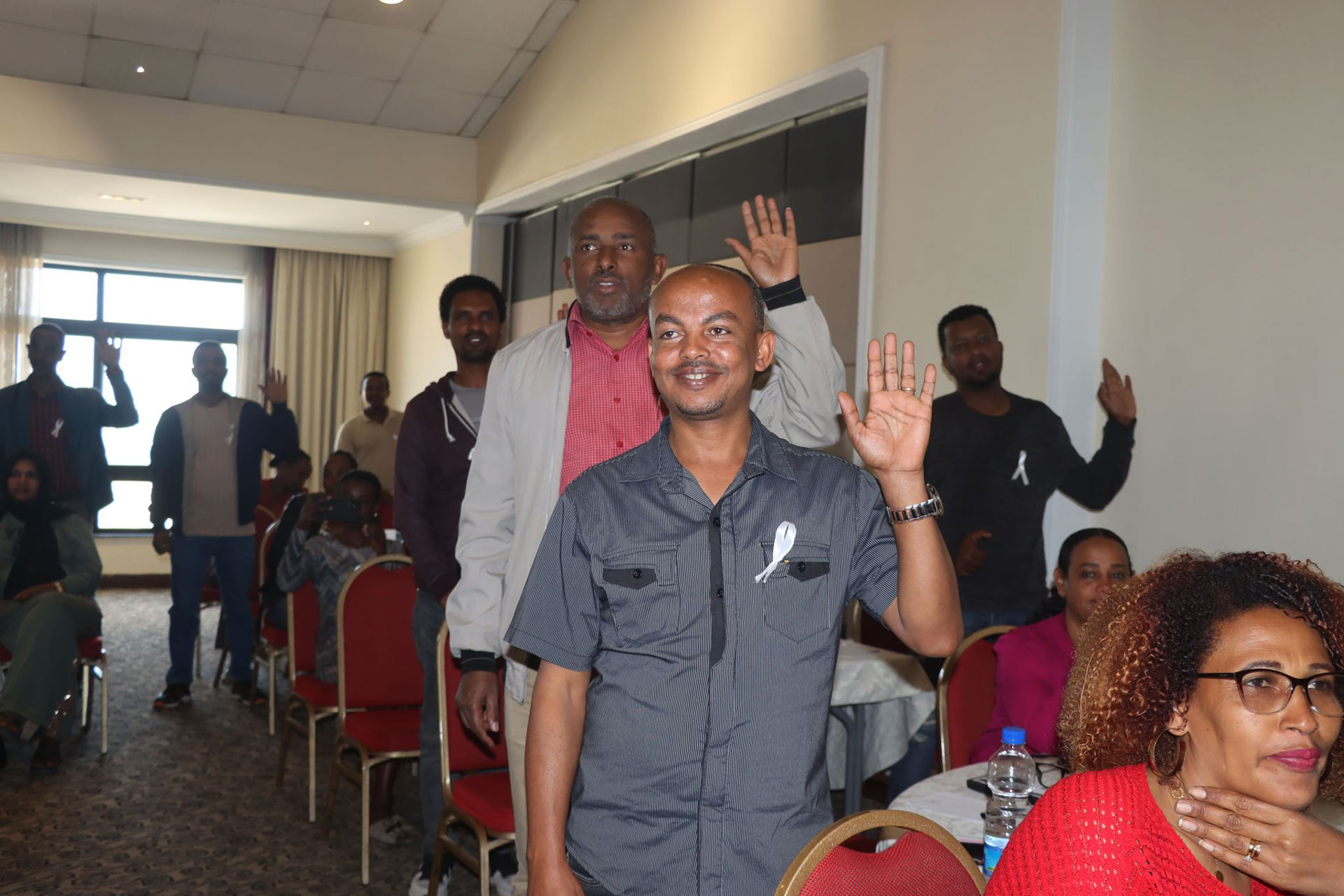
Pictured above: During a community mobilization workshop organized by the Make Way Project, men in attendance raise their left hands to make a pledge against gender-based violence.


